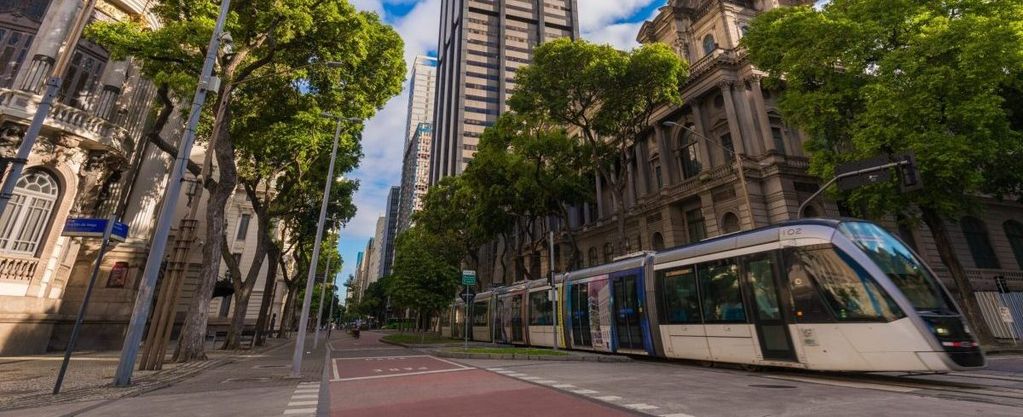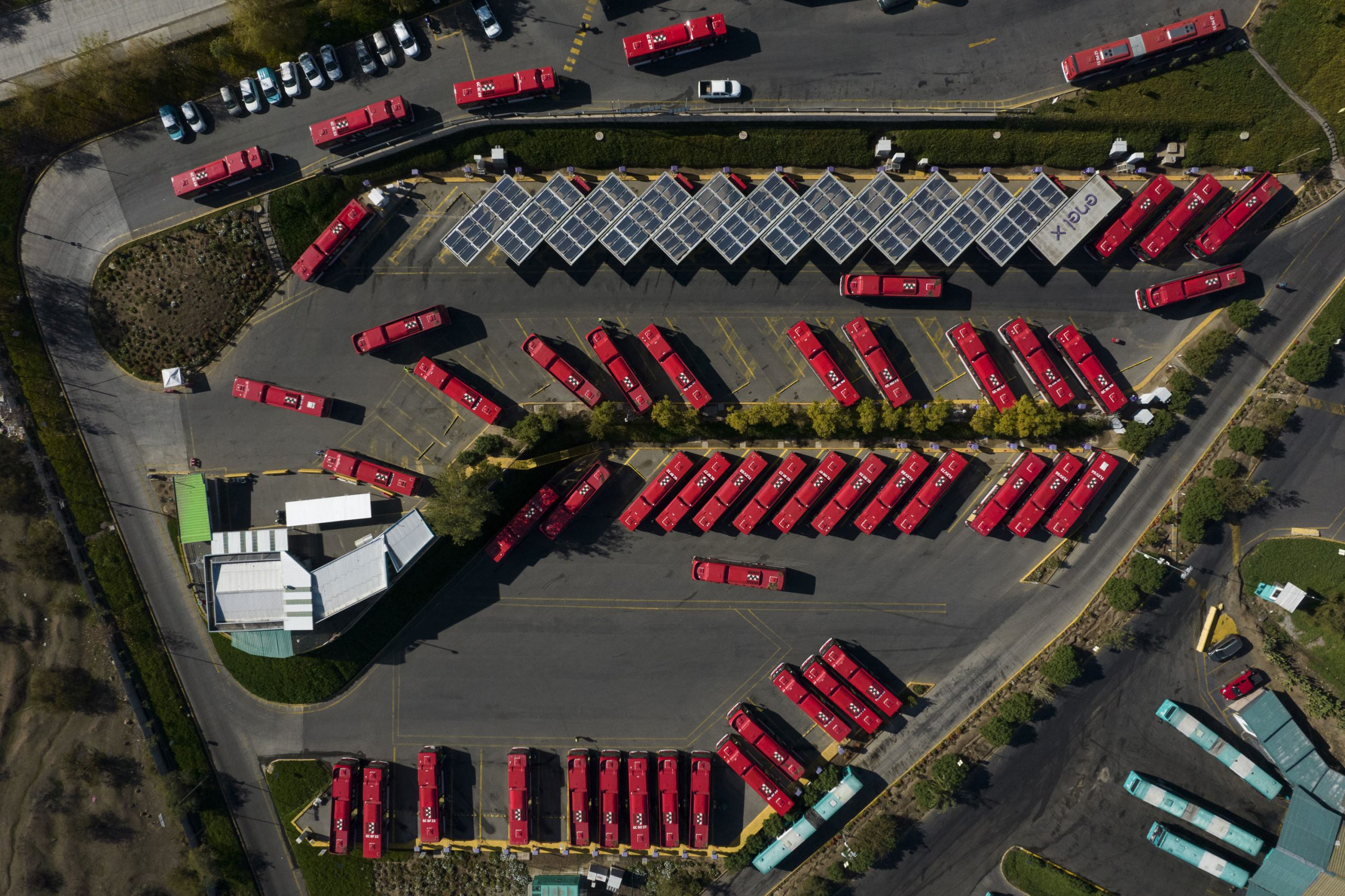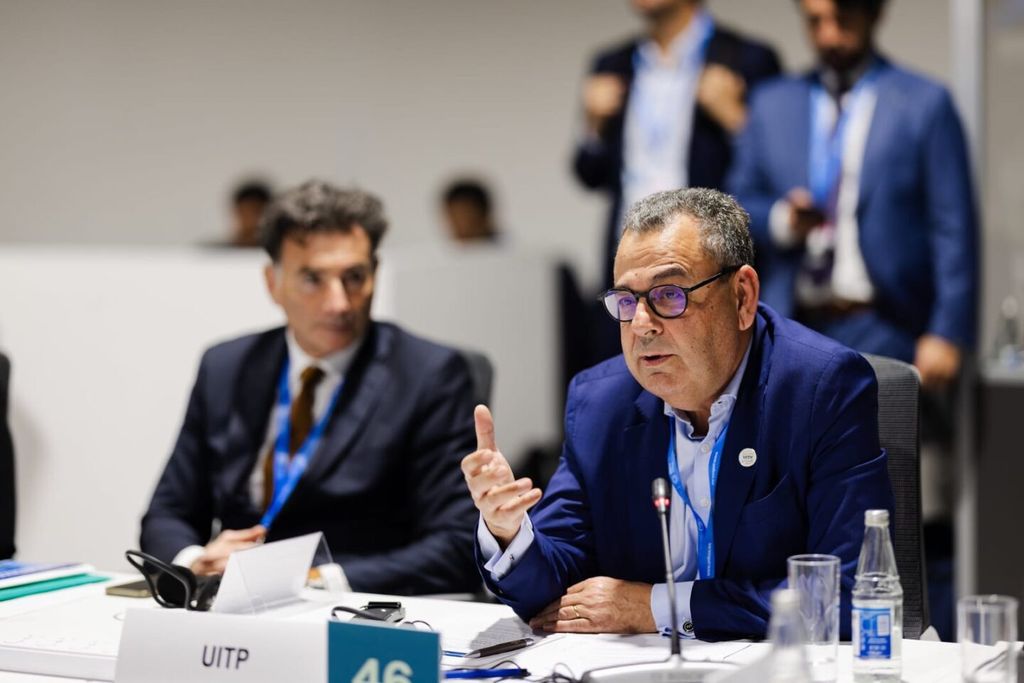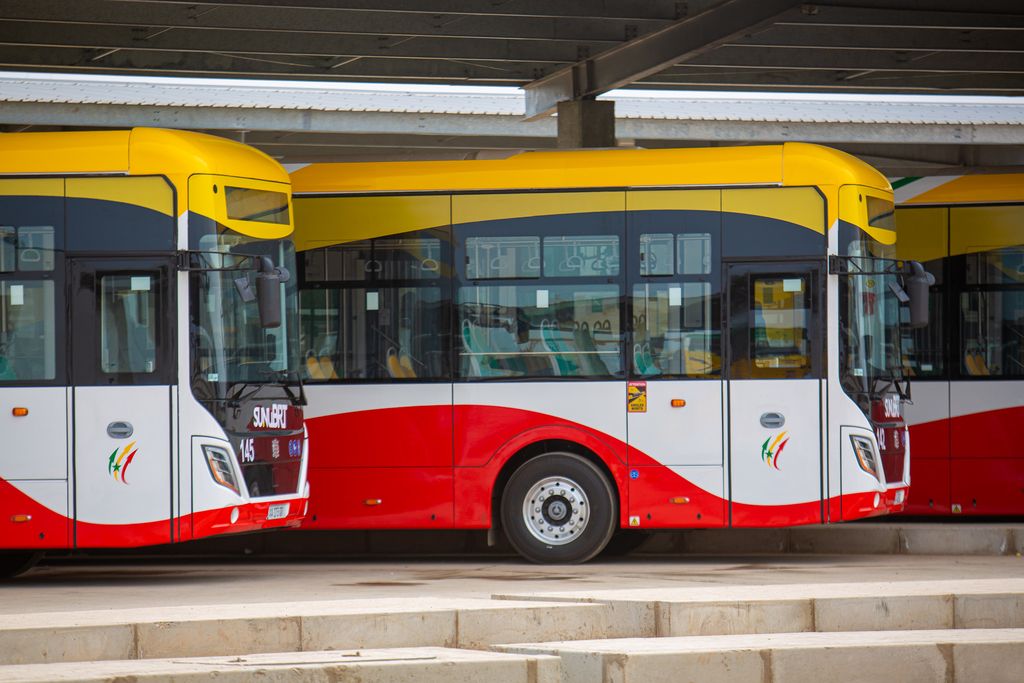
Guidance for cleaner public transport: Transitioning to renewable energy
Combating climate change and lowering energy costs
Since 2017, trains in the Netherlands have been 100% run using energy from wind power, which is impressive, considering the Dutch train operator NS (Nederlandse Spoorwegen) accounts for approximately 1% of the total electricity consumed in the Netherlands.
Rooftop solar panels currently meet 3% of the total energy consumption of Delhi Metro Rail Corporation’s operational needs. And In Shenzhen, China, the introduction of electric buses saves around 194,000 tons of CO2 per year.
As of December 2022, EMT Madrid’s last running diesel bus switched off its engine for good. A promise the Mayor has fulfilled, following the acquirement of nearly 1,300 diesel-free buses to renew 60% of its fleet and approximately 88% of the fleet running on biogas.
We are hearing more and more cases of our members transforming their operations towards renewable energy sources. Based on the Sustainable Development Committee survey in 2022, 72% of respondents have net-zero strategies. One of the greatest challenges of our time is undoubtedly the availability of energy resources and overcoming the energy transition.
A widespread adoption of renewable energy resources will not only help to combat climate change but help in lowering energy costs at a time when prices are soaring.

The sector is ramping up its decarbonisation efforts
While public transport is an energy-efficient mode of travel and already partially powered by electricity, transport operations have traditionally relied on polluting fossil fuels.
However, with global climate targets, the sector is ramping up its efforts to decarbonise. In fact, electric bus sales increased by 40% globally in 2021, now representing 4% of the global bus fleet.
Yet, it is not just the electrification of buses, boats, shared cars and trains fleets, but organisations are also investing in alternative energy sources, such as hydrogen and biofuels. And securing renewable energy supplies to cover energy consumption across all assets.
The transition to renewable energy is an outstanding opportunity for the public transport sector to reaffirm its leadership position as a provider of sustainable mobility. Across all assets, the energy transition only strengthens benefits of public transport and should be on the agenda of all stakeholders in the sector.
UITP Report provides guidance on renewable energy transition
UITP’s latest publication “The road to sustainability: Transition to renewable energy in public transport”, provides guidance on how public transport undertakings can achieve a successful energy transition for their decarbonisation goals, inclusive global examples of what the sector is currently doing.
The Report covers:
- Energy use in today’s public transport
- Decarbonisation of mobility and the role of public transport
- The challenges and perspectives on differing energy markets segments to the schemes available
- Setting up the energy transition and assessing the impacts
Renewable energy supplies will differ from one context to another. Which is why it is important to understand the legal context and local energy markets before engaging important investments in infrastructures or fleet renewals. Working in cooperation with an energy provider/developers, municipalities and other energy consumers is key to a successful deployment of new renewable electricity assets and a supply of renewable fuels.
This report gathers a year’s worth of work between the UITP Sustainable Development Committee and other UITP members who kindly contributed to our working group. Over the course of 2022, the energy topic grew in importance for many, and I believe the hard work all our contributors put in this report should support the sector in facing the energy and climate crisis. Stay tune in the coming months for more on the topic of renewable energy!
How public transport can decarbonise
The latest survey from the UITP Sustainable Development Committee found that decarbonising public transport and increasing its modal share is the fastest and most cost-efficient way to achieve decarbonised operations across the organisation. As energy costs account for roughly 30% to 50% of the total public transport budget, transitioning to owned sustainable energy supplies or cooperating with energy providers and local stakeholders can save a lot of money!
Read the news article summarising the survey results

Join the webinar on Hydrogen zero-emission buses!
On 31 January, UITP Asia-Pacific and UITP India are hosting a webinar on “Hydrogen Zero Emission Buses (ZEBs) – Experience and Way Ahead”. This webinar will bring together expert speakers to share knowledge and discuss the development of hydrogen fuel cell buses in public transport.
The webinar will allow us to delve deeper into the following key areas:
- Fuel Cell Buses
- Future of Hydrogen Fuel Cell Buses in Europe
- Experience on Hydrogen Buses in China
- New Zealand’s First Hydrogen-Powered Buses
- Providing Power for the future of public transport











